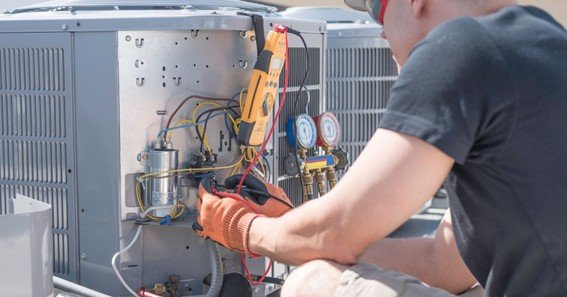When your air conditioning system experiences issues, a faulty capacitor is often the culprit. Recognizing the associated replacement costs can help you budget effectively and ensure your home remains comfortable.
Factors Influencing AC Capacitor Replacement Cost
Several elements impact the overall expense of replacing an AC capacitor:
- Type of Capacitor: Capacitors vary in function and price:
- Run Capacitors: Assist motors during operation; typically costs between $8 and $30.
- Dual-Run Capacitors: Support both compressor and fan motors; range from $15 to $45.
- Start Capacitors: Provide initial energy boost; priced between $9 and $25.
- Blower Capacitors: Specific to blower motors; usually $9 to $12.
- Heat Pump Capacitors: Designed for heat pumps; cost between $15 and $25.
- Labor Charges: Professional HVAC technicians charge for diagnostics and labor, with fees varying based on location and company. Labor costs typically range from $60 to $250.
- Service Call Fees: Some companies impose a diagnostic fee, averaging between $100 and $150.
- Unit Accessibility: Capacitors in hard-to-reach areas may increase labor time and costs.
- Brand and Quality: High-quality or branded capacitors can be more expensive but may offer enhanced durability.
Average Cost Breakdown
The total cost for AC capacitor replacement varies:
- Low-End: Approximately $80, typically involving DIY replacement with minimal labor costs.
- Average: Around $175, encompassing standard labor and mid-range capacitor prices.
- High-End: Up to $400, accounting for premium capacitors and higher labor fees.
DIY vs. Professional Replacement
While replacing a capacitor might seem straightforward, it’s essential to weigh the risks:
- DIY Replacement: Capacitors cost between $30 and $80. However, improper handling can lead to electrical hazards, void warranties, or cause further damage.
- Professional Replacement: Hiring a certified HVAC technician ensures correct installation, safety, and preservation of system warranties. Labor charges typically range from $60 to $250.
Tips to Reduce Replacement Costs
- Regular Maintenance: Scheduled inspections can identify potential capacitor issues before they escalate, preventing unexpected failures.
- Off-Peak Repairs: Scheduling repairs during non-peak seasons may result in lower labor charges due to reduced demand.
- Warranty Check: Determine if your AC unit’s warranty covers capacitor replacement, potentially reducing out-of-pocket expenses.
Conclusion
Understanding the factors influencing AC capacitor replacement costs enables homeowners to make informed decisions, ensuring their cooling systems operate efficiently without unnecessary financial strain.
FAQs
What are the signs of a failing AC capacitor?
Common indicators include the AC unit not turning on, humming noises, or the system shutting down unexpectedly.
How long does an AC capacitor typically last?
Capacitors generally have a lifespan of 10 to 15 years, but factors like heat exposure and power surges can shorten their longevity.
Can I replace the AC capacitor myself?
While possible, DIY replacement carries risks, including electrical shock and voided warranties. It’s advisable to hire a professional.
Does homeowners insurance cover capacitor replacement?
Typically, standard homeowners insurance doesn’t cover wear-and-tear repairs like capacitor replacement.
How can I extend the life of my AC capacitor?
Regular maintenance, ensuring proper ventilation around the unit, and using surge protectors can help prolong capacitor life.










